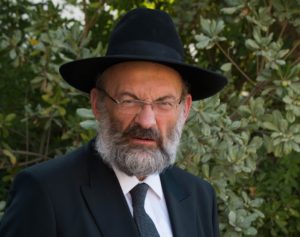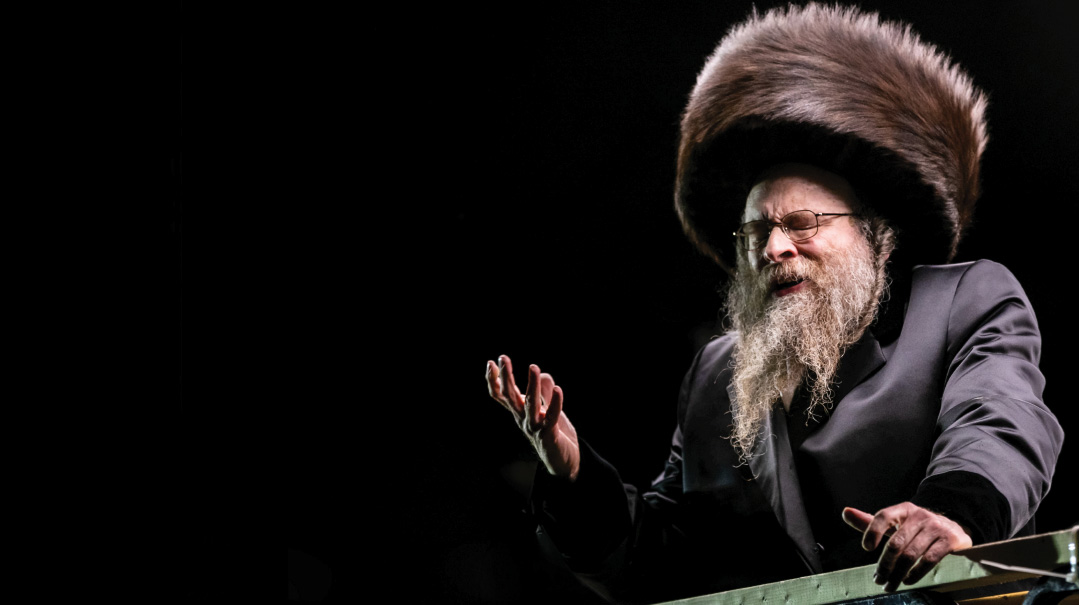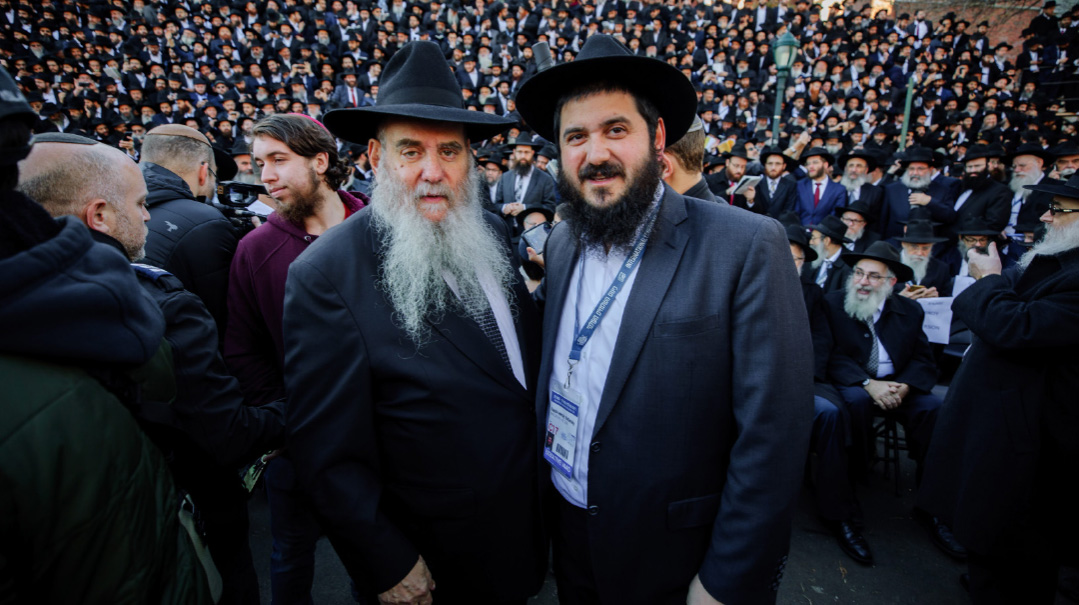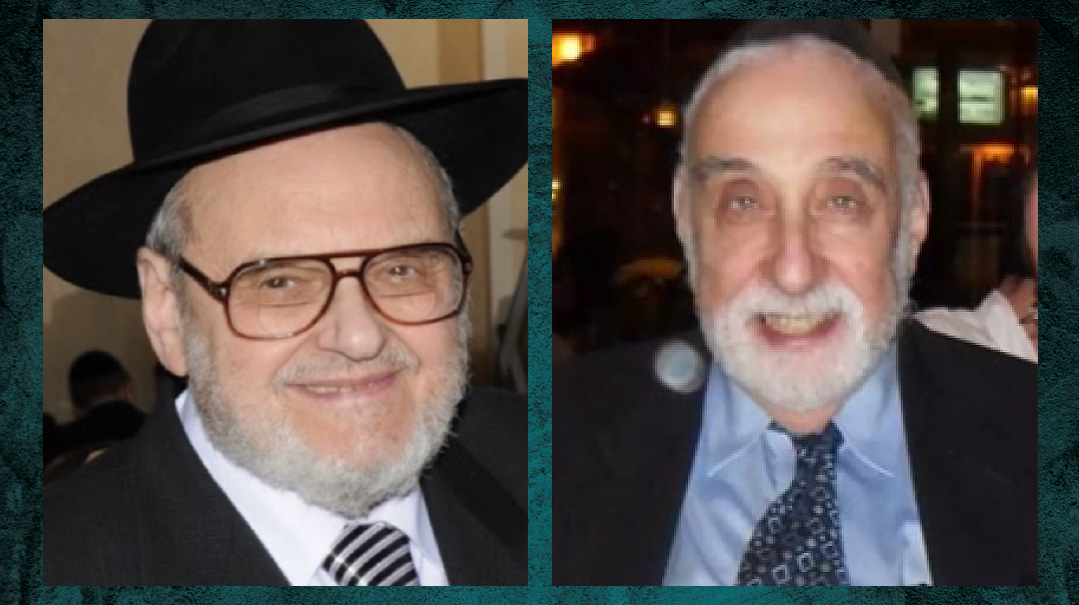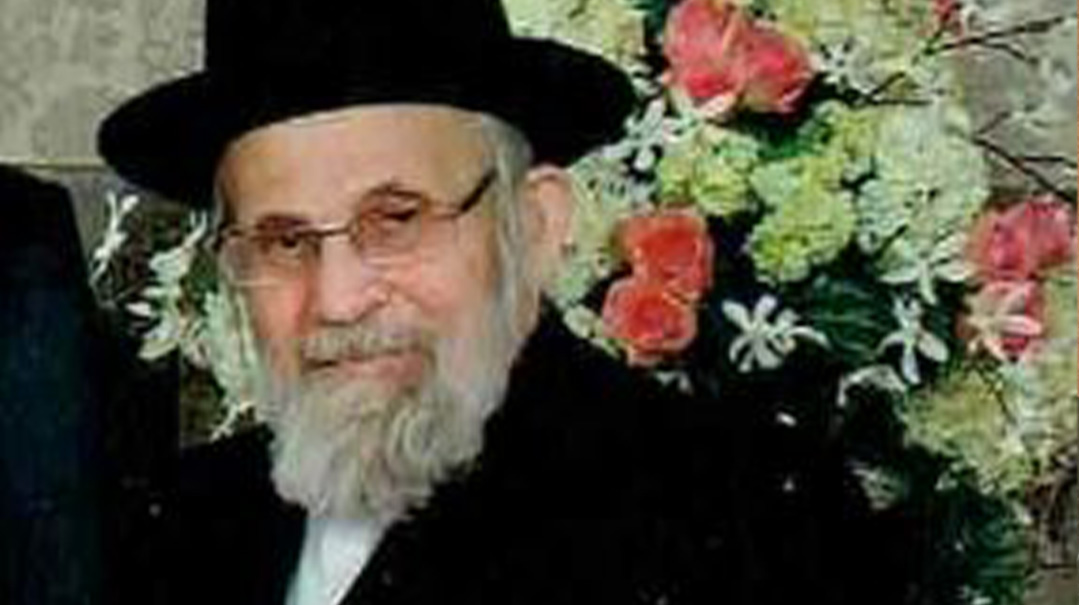He Saw the Potential Me
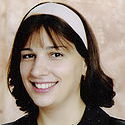
Rabbi Copperman saw in me a person who did not yet exist, and he believed that potential me into existence
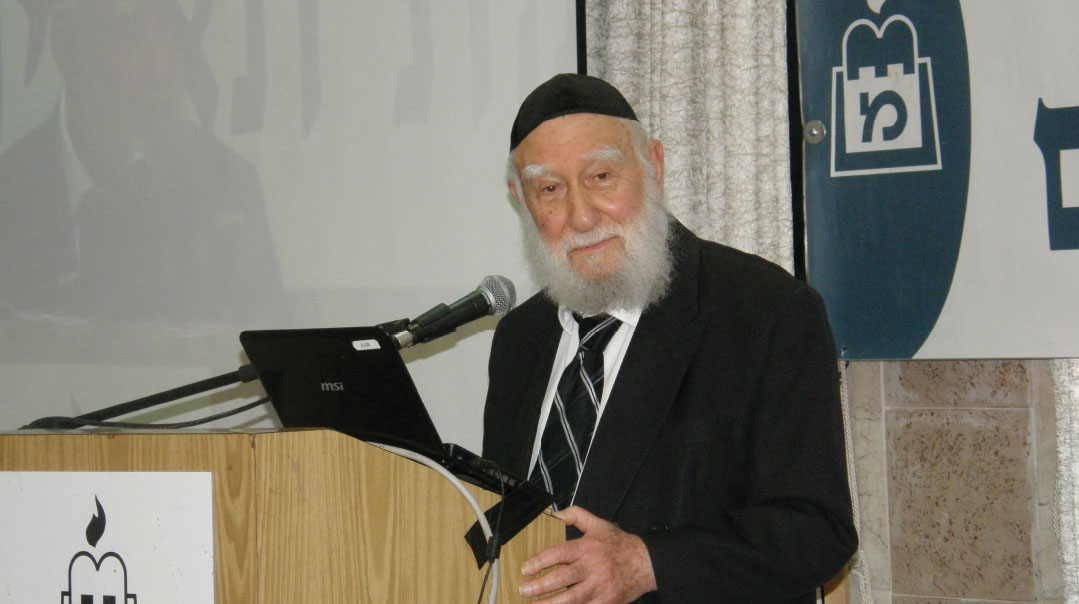
It’s been more than twenty years, and I still can’t share this story without crying.
At 17 I landed in Israel, alone, with my guitar, trombone, bicycle, and two suitcases. I had left behind family and friends, ready for whatever life had in mind. My first year was filled with mind-blowing Torah classes at a Jerusalem seminary for baalos teshuvah that engaged my soul and challenged my mind. I spent late nights waiting tables in a local dairy restaurant, and early mornings riding my bike to ulpan, where I learned Hebrew with interesting characters from around the world. I experienced spiritual highs and had plenty of fun with my friends, an eclectic and musical group of fresh baalei teshuvah. I had left my black leather jacket and purple combat boots back in the US, but I found a life that was no less exciting in Jerusalem.
As the year ended, I knew it was time to move forward in life, and that meant going to college. I took the bus out to Hebrew University. The road wound upward with stunning views on either side as I approached Mount Scopus, but once I was on campus, there was nothing that seemed Hebrew or even Jewish about it. The thought of spending my days in Israel on a college campus like any of the ones I had rejected in America made my heart sink. I should have been happy when I got my acceptance letter; instead I felt dread. But what were my other options?
A few days before the start of the fall semester I was sitting with my aunt, Tanta D’vora, in her cozy green-tiled kitchen in Bayit Vegan, with its endless supply of hot cocoa and chocolate cake, telling her I was supposed to start classes soon. She saw I was unhappy, and knew the right questions to ask. Soon I was crying so hard I was trying to keep tears out of my cocoa.
“I don’t know what to do. This isn’t what I came here for. I could have gone to Yale if I had wanted sterile academics. I came to Israel to grow, to be Jewish! I know I want to get a degree, and I don’t want to put it off anymore, but…”
My aunt worked for decades at Michlalah Jerusalem College for Women in Bayit Vegan, and her three daughters had earned their degrees there. When my aunt suggested that I apply, I wasn’t terribly surprised, but I was concerned I wouldn’t fit in. Although I was committed to Judaism, I was a far cry from the Bais Yaakov and Ulpana graduates who studied there.
“Shalvi, the Michlalah students are smart and kind. You might be different, but they’ll help you — and I’m sure you’ll find some friends along the way. They have a music program — you’d be able to learn music and Torah, and get a bachelor’s degree. Why don’t you go down there and walk around a little bit? It’s a lovely campus, and you’ll get an idea of what the place is all about.”
Minutes later, with my face washed and directions in hand, I headed down the hill. Classes were starting in a couple of days and many of the staff members were already on campus, in their offices preparing. I wandered past the big, well-stocked library, the pool, beautiful gardens, and enormous murals painted with Torah themes.
I found the music wing and spoke in halting Hebrew to the head of the department. He was very welcoming, and excited by the idea of having a trombone in the wind ensemble, but told me that as far as he knew, registration was closed, and I would need to speak with the registrar.
I made my way to her office. She told me right off that registration was closed, then started firing questions at me: Why was I coming at the last minute? Where had I gone to high school? What level ulpan had I completed? What knowledge did I have of Jewish studies?
As I tried to answer, I found myself getting more and more tongue-tied. She didn’t seem as sympathetic a person to cry to as my aunt, and I struggled to remain composed. Finally she suggested that I take another year to improve my Hebrew, and directed me to a particular seminary where I had already had a very bad experience. With my heart sinking, I nodded, stood up, and left.
Heavy steps up the hill returned me to my aunt’s apartment for another round of tissues, cocoa, and encouragement. I shared the details of my misadventure as she listened thoughtfully.
When I finished, she simply said, “I have an idea. We’ll talk tomorrow.”
I wasn’t sure what she was up to, but I had the sense that I was in good hands.
When I showed up the following day, Tanta D’vora was quite pleased with herself. As she made me a cup of cocoa, she updated me. She began by detailing the family’s 35-year history with Rabbi Yehuda Copperman, the dean of Michlalah, and his wife. Uncle Kief and Tanta D’vora had known them back in Chicago, before any of them made aliyah.
After Rabbi Copperman founded the school, Tanta D’vora started working there, and since then the families had celebrated many simchahs together. When my grandmother — Tanta D’vora’s mother — reached her final years, Rabbi Copperman would take time to visit with her, sometimes going out of his way. Yet despite these longstanding ties, Tanta D’vora had never asked Rabbi Copperman to intervene on a personal matter.
“Well, until yesterday,” she said with a chuckle and a twinkle in her eye. “I called Rabbi Copperman and asked if Uncle Kief and I could discuss something with him. He invited us to join him and his rebbetzin for tea. I explained that I have a brother who chose a lifestyle different from ours, and his daughter had come to Israel on aliyah and was doing teshuvah. I told him you’re very smart but lacking the background other students have, and you’d work hard to make up for lost time. I asked him if he’d be willing to meet you.
“He was introspective for a moment, and then said, ‘Your mother, this young woman’s grandmother, was a very special woman, both learned and pious. If I can help your niece become more like her grandmother, I will have accomplished something by opening this college. Tell her to come to my office tomorrow.’ ”
I felt my grandmother, whom I had hardly known, was watching out for me from above. I remembered being in her home as a small child, the smells of medicine and margarine. I remembered matching sweaters she had knit for me and my best friend, the birthday cards with $20 checks.
Looking back, I see she had tried to build a relationship with me, but the distance was too great. We lived on different coasts and in different worlds. She was a Holocaust survivor who had used every ounce of her determination and faith to miraculously escape with her four children. Her trials didn’t end there; establishing herself in a new country, with a new language and many financial challenges, she didn’t give up, paying handsomely to give her children the best Jewish education available. Here she was now, pulling strings from On High to ensure that I too would receive a proper Jewish education.
My aunt coached me on what to wear (no, Michlalah girls don’t wear sunhats, even if the Jerusalem sun is beating down mercilessly), helped me pick out an appropriate hair style, and sent me off to the campus. With my heart in my throat, I nervously knocked on the door of Rabbi Copperman’s study. He invited me in, and with a big smile and his congenial Irish accent, asked me a few questions about myself.
Then he opened a Chumash to parshas Noach and asked me to read a few verses. So far so good; my Conservative Jewish elementary school education stood me in good stead. Then he pointed to the Rashi script below. My pace slowed as I struggled to enunciate the words in front of me. He asked me to summarize what I had read. I floundered a bit until he took over and explained what Rashi was presenting. I was clearly lost, but Rabbi Copperman just smiled and directed me to the registrar, who was surprised to be told that she should process whatever paperwork was necessary so that I could begin classes the following day.
Two weeks later I stood at my grandmother’s gravesite for the first time. I felt I needed to come and thank her in person for interceding on my behalf. Buried in the same area were more of my relatives I had never known. Tanta D’vora shared stories of a rich family Torah legacy I knew nearly nothing about. I wasn’t even sure what to say or how to pray as I stood there, but as far as I felt from my deceased relatives, I felt closer to their endowment than I did to the Mount Scopus campus only a short distance away.
My first semester at Michlalah passed in a daze. At first I aspired to understand and take notes on my classes, but that caused endless frustration, migraines, and two rounds of antibiotics. I absorbed whatever I could. My teachers were explaining why Rashi sometimes ends a comment with v’chulei and other times with v’gomer, as I was trying to tell a kuf from a kaf and figure out who came first among Avraham, Yitzchak, or Yaakov. I managed to perfect the art of not being called on in class.
By the end of the first semester, my Hebrew had improved enough that I could understand my classes and answer questions on material we learned in the final weeks. But I had no notes from the early classes. Asnat, a brilliant, petite Yemenite girl, offered to let me copy her notes — but I couldn’t decipher her handwriting, much less grasp the concepts. I was shy and ashamed, but that didn’t stop Asnat. She took me back to her dorm room, served me lunch, and then spoon-fed me the material I needed to know for the exams. My grades weren’t great, but Asnat and I were very proud of my accomplishment. One of my teachers had marked my test “68% — tov me’od!” It was clear to her that the grade had been hard-earned.
The girls there were as wonderful as my aunt predicted, all bright, curious, and serious about their studies. They invited me to their homes for Shabbos and made me part of the family, and they loved to sing. They came from diverse backgrounds: the Ashkenazi Bais Yaakov girl who married the first man she was redt, after only six dates; the twins whose father was from India; the Moroccan daughter of a rosh yeshivah whose mother was an amazing cook. Two other American baalos teshuvah had taken the courageous step of coming to learn in Michlalah. We often had lunch together and although we commiserated over our struggles, it was clear there was nowhere in the world we would rather be.
The pool and the library became my safe havens — one physical and one mental. The library offered endless books on every Jewish subject, including many in English translation. Whenever I finished my classwork, I would collect a big pile of titles that excited me and feast my malnourished soul. I had been wary of anyone telling me how to think, as if there were only one valid Jewish way; my teachers at Michlalah taught us the approach of the Rambam, the Kuzari, and the Maharal, and encouraged us to find similarities and differences. Rabbi Nissel’s tefillah class was a highlight of my week, and I could always count on a good Minchah on Wednesdays.
As wonderful as it all was, I was clearly an outsider. I still rode my bike to and from school, and when it got cold, I wore jeans under my skirt. My friends were more grounded, and I was still searching for the spiritual highs. While my fellow students could write impressive papers and get straight A’s, I struggled to maintain a C average. Sometimes I wondered if Rabbi Copperman was keeping tabs on my progress, or if the registrar might call me over and tell me a terrible mistake had made and I really didn’t belong in Michlalah. But when I saw Rabbi Copperman outside the classroom, he just smiled and nodded; and, thankfully, that dreaded conversation with the registrar never took place.
At the end of my second year, when I was facing having to write another ten-page paper in Hebrew, I almost gave up. I didn’t know what to write, and I was discouraged by all the red marks on my previous papers. I decided to enroll in a hairdressing course. I could probably make a better parnassah than I would as a teacher, and I’d avoid all the exams and term papers. This time my mother was the one who encouraged me to just finish the necessary coursework for the semester, even with just a passing grade, so I would earn college credits that could be useful in the future. After I turned in that dreaded paper, Michlalah suddenly didn’t seem so terrible after all, and I continued into my third year.
To graduate from Michlalah, we needed to pass a large number of tests: Rashi on each of the Chumashim, Ramban, machshavah, Tanach, halachah, as well as secular subjects related to education. It took me much longer to finish than most of my peers, but when I did finally graduate, I knew this was one of my greatest life accomplishments. I joked that I could have gotten a doctorate from Yale with less effort than I had invested in my Michlalah bachelor’s degree.
I wrote Rabbi Copperman a letter thanking him for all he had done for me. He gave me the tools I needed to be able to teach in a seminary, a role I never could have fulfilled without the education I had received at Michlalah. He gave me the opportunity to learn Torah from the inside — not only inside the sources, but also inside the frum world. I shudder to think where I would be today if I had gone to a secular university. Would I have stayed frum? Or would I have defected, as did a surprising number in that first eclectic group of my baalei teshuvah friends in Israel? Would I have even graduated?
Rabbi Copperman saw in me a person who did not yet exist, and he believed that potential me into existence. He saw hints of my grandmother: her mesirus nefesh, her chesed, and her ability to teach and inspire others. He took a risk, and let himself be guided by his vision of the future instead of being limited by the facts of the present. He challenged me to look inside myself and bring all my inner resources to my struggle to learn Torah and live a Torah life.
Now that I, too, am a teacher and have opportunities to guide others in my community, I hope I am not only more like my dear Bubby, but also like Rabbi Copperman. —
(Originally featured in Mishpacha, Issue 794)
Oops! We could not locate your form.






